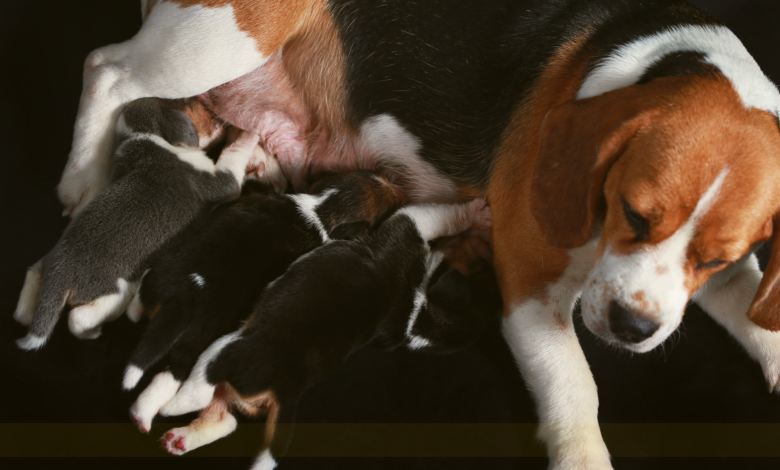Wisconsin’s Ridglan Farms to Shut Down Research Beagle Breeding Following Settlement

A major shift is underway in Wisconsin’s long-controversial research-dog industry. Ridglan Farms — one of the nation’s largest suppliers of beagles for medical and laboratory research — will officially end its large-scale breeding program next summer. The decision follows a settlement announced on October 28, 2025, allowing the facility to avoid prosecution while agreeing to halt commercial breeding operations by July 1.
The news marks a significant moment for animal advocates nationwide, who have long raised concerns about conditions at the remote Blue Mounds facility. Initial reporting by the Milwaukee Journal Sentinel detailed allegations of unclean environments, painful procedures without proper anesthesia, and cramped confinement affecting thousands of dogs. For decades, Ridglan operated largely out of public sight, housing more than 3,000 beagles bred specifically for research institutions.
Under the settlement, Ridglan will remain permitted to conduct internal research on the dogs already in its care, but the end of its mass-breeding program represents one of the most substantial reductions in U.S. research-dog production in years.
A Facility Long Under Scrutiny
Ridglan Farms has shaped the research-dog pipeline for nearly 60 years, supplying beagles to private laboratories, pharmaceutical companies, and public universities — including the University of Wisconsin–Madison. Advocacy groups, including Dane4Dogs and the Alliance for Animals, submitted evidence outlining welfare concerns, prompting a special prosecutor to review the case earlier this year.
While only one allegation — involving improper eye procedures — was deemed prosecutable, the breadth of concerns raised helped reinforce the push for operational change.
Advocates celebrated the outcome as a long-awaited milestone. According to the Milwaukee Journal Sentinel, rescue groups have already begun preparing to help place any adoptable beagles once breeding officially ceases.
Additional Allegations and Findings from PETA
Information published by PETA adds context to the longstanding criticism of Ridglan’s practices. Their reporting, sourced from undercover investigations, public records, and former employees, paints a troubling picture of the industry that relies on mass-produced research dogs.
According to PETA’s documentation, which we reference here where applicable:
- Beagles were allegedly confined in stacked metal cages inside windowless sheds.
- Dogs suffered untreated injuries and swollen, irritated paws from wire flooring.
- A former employee claimed that “cherry eye” procedures were performed using scissors — without pain relief or veterinary credentials.
- Nearly 275 beagles reportedly die at the facility each year before ever reaching a laboratory.
- Ridglan sold dogs to institutions where they were subjected to painful and often terminal experiments, including chemical exposure tests, glued tick-feeding chambers, and drug-inhalation trials.
- Ridglan also supplied dogs to “High Quality Research,” a Colorado laboratory at the center of a six-month PETA undercover investigation revealing dogs whose vocal cords were cut without pain management.
PETA also notes that Ridglan’s head veterinarian was stripped of his license, further fueling calls for greater accountability and transparency.
What Happens Now?
The shutdown of Ridglan’s breeding program means the U.S. will be left with only one major commercial beagle-breeding operation supplying laboratories. Advocacy groups see this as evidence of shifting national attitudes — not just among the public, but among scientific communities exploring alternatives to animal testing.
While Ridglan has stated publicly that it is committed to improving veterinary medical research and continuing internal studies, advocates argue that any progress must include meaningful steps toward releasing the remaining dogs into homes rather than laboratories.
As PETA emphasized, the ultimate goal isn’t simply reducing breeding — it’s ensuring dogs are free from the research pipeline altogether.
A Turning Point – With More Work Ahead
For thousands of beagles historically bred at Ridglan, the settlement represents a long-awaited change — one shaped by persistent advocacy, investigative work, and growing public pressure.
The facility’s decision to halt breeding doesn’t end the broader conversation about the use of dogs in research, but it does mark a meaningful shift in an industry that has long operated with limited transparency.
As animal-welfare groups prepare to help rehome dogs and continue pushing for an end to research-dog breeding nationwide, this moment serves as a reminder of how sustained community action can lead to real, measurable change.
